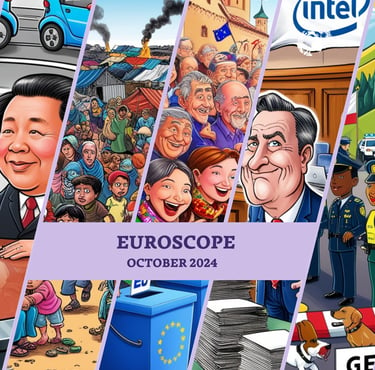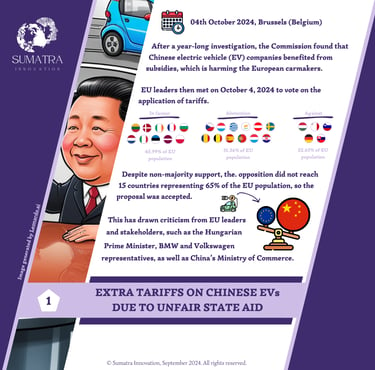Euroscope / October 2024



1/ EU leaders voted to impose tariffs on Chinese EVs due to unfair Beijing state aid
After a year-long investigation by the Commission, the findings showed that Chinese electric vehicle (EV) companies benefited from subsidies to sell their products at a lower price on world markets, which harmed European carmakers. EU leaders then met to vote on the application of tariffs. Ten countries representing 45.99% of the EU population voted in favour (Bulgaria, Denmark, Estonia, France, Ireland, Italy, Lithuania, Latvia, Netherlands and Poland), twelve countries representing 31.36% of the EU population abstained (Belgium, Czech Republic, Greece, Spain, Croatia, Cyprus, Luxembourg, Austria, Portugal, Romania, Sweden and Finland), and five countries representing 22.65% of the EU population voted against (Germany, Hungary, Malta, Slovenia and Slovakia). Despite non-majority support, there was not enough opposition to block the proposal (i.e., it would have required the rejection of at least fifteen countries representing 65% of the EU population), so the proposal was accepted. As a result, the price of EVs could rise for consumers and undermine the EU's goal of having at least 30 million zero-emission cars on European roads by 2030. The decision has also drawn criticism from EU leaders and stakeholders. Hungarian Prime Minister Viktor Orban said the EU was heading for an ‘economic cold war’ with China, China's Ministry of Commerce described the decision as unfair, non-compliant and unreasonable, violating WTO rules, and BMW and Volkswagen called it a wrong-headed approach and a fatal signal for the European car industry.
2/ The EU’s new approach to deal with migration flows
The issue of migrants has (once again) been at the centre of discussions within the EU. First, a report outlining the EU's €1 billion deportation machine in Turkey was published on 11 October 2024, in which we learn that Syrian and Afghan refugees have been ‘detained, mistreated and even killed’ in Turkish migrant centers. A few days later, on 15 October 2024, von der Leyen stated that a new European deportation law would be proposed with the aim of supporting ‘return centers’ outside the EU to intern asylum seekers or process asylum procedures. To strengthen cooperation with host countries, tools such as trade, development funds and visa policy will be used, a method that has been supported by countries such as Italy, France, Greece and Germany. In addition, Austria has proposed adding Syria and Afghanistan to the list of safe countries in order to increase expulsions, while the Dutch conservatives (PVV) has also mentioned adding Uganda.
3/ Moldovan citizens voted in favour of the EU accession path
The citizens of the Republic of Moldova, a country situated between Romania and Ukraine and a former Soviet state, have voted in favor of the referendum on the EU. With 50.46% in favor and 49.54% against, they are expected to move closer to EU membership. It is also a victory over Russian interference. At the beginning of October, the Moldovan police confirmed that Ilan Shor, a pro-Russian oligarch, had channeled 39 million dollars into buying votes for the pro-Russian camp. The first transfers to the bank accounts of thousands of Moldovans were made in September 2024, to the tune of $15 million, followed by further transfers of $24 million in October 2024. From now on, the EU and Moldova will be working even more closely in the hope of concluding accession before 2030. To do this, the European Parliament and the Council will first have to approve the recently announced €1.8 billion Growth Plan, aimed at improving Moldova's healthcare, energy system, public infrastructure, rule of law institutions and businesses.
4/ The CJEU dismissed Intel’s €1.06B fine in an anti-trust case
On 24 October 2024, after a fifteen-year legal battle between US chipmaker Intel and the European Commission, the final verdict was delivered. In 2009, the Commission fined Intel €1.06 billion for illegal sales tactics aimed at excluding its smaller rival AMD by granting rebates to computer manufacturers DELL, Hewlett-Packard, NEC and Lenovo. However, Intel appealed and found itself before the General Court in January 2022, which ruled that the rebates could not be considered abusive per se, as the Commission's conclusions did not make it possible to prove their anti-competitive effects. Indeed, the analysis was incomplete, lacking information on the terms and conditions under which the rebates were granted, their actual duration and amount, the market share covered by the practice, or the possible existence of a strategy aimed at excluding competitors from the market. The Commission decided to appeal the decision and refer the matter to the CJEU, but the latter ruled in Intel's favour, rejecting the Commission's appeal and confirming the General Court's judgment.
Case-law (CJEU): C-4240/22P
5/ EU countries increased controls and checks of their internal borders
Several Schengen countries have decided to tighten controls and checks at their internal borders, justified by the need to protect the country against crime and curb immigration. However, this decision could also damage the unity of the EU. It all began with Germany, whose measures have applied since September 16, 2024, and were then tightened on October 12, at its borders with France, Belgium, the Netherlands, Luxembourg and Denmark, and could last until March 2025. It was then followed by France, Sweden, Denmark, Norway (a non-Schengen member) and Austria.




